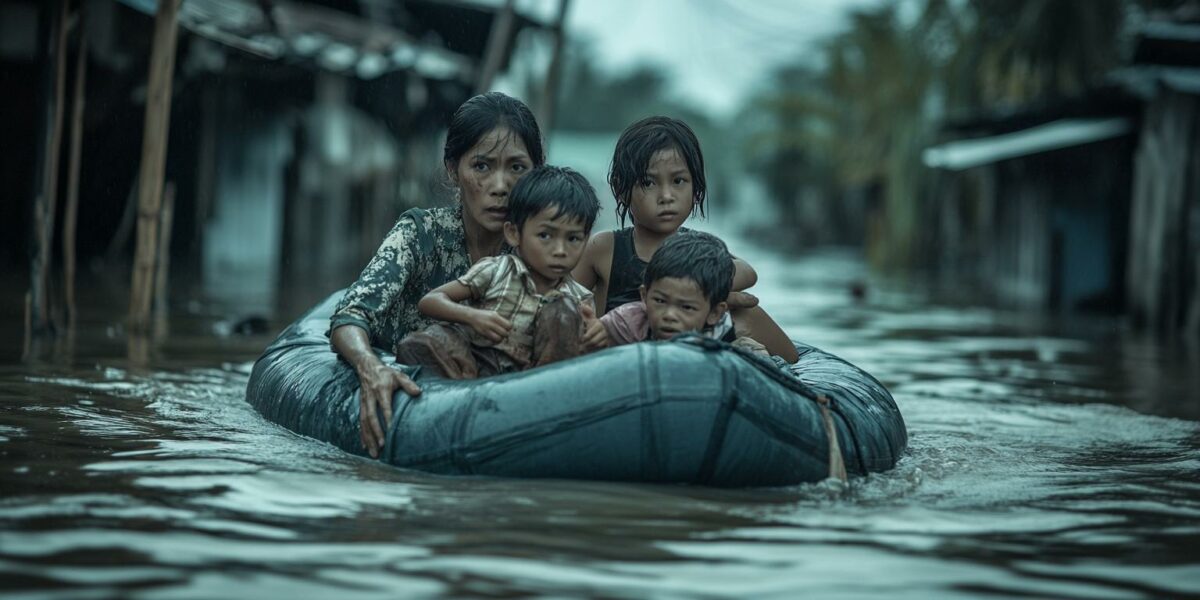Global Social Protection Crisis
According to recent findings, 3.8 billion individuals lack any social protection, despite half the world having access to at least one benefit. This includes a staggering 1.8 billion children, highlighting the urgent need for comprehensive safety nets worldwide.
The International Labour Organization (ILO) underscores that climate change doesn’t respect borders, making it a universal threat. Gilbert Houngbo, ILO Director-General, emphasizes that the climate crisis poses the gravest threat to social justice today.
Governments are significantly underutilizing social protection as a tool to mitigate the adverse effects of the climate crisis. This lack of action hinders efforts to transition to a greener future.
The ILO’s latest report reveals that while social protection coverage has increased, vast disparities remain, especially in climate-vulnerable regions.
A Deeply Divided World
The report indicates that over half of the global population now has some form of social protection, up from 42.8 per cent in 2015. However, 91.3 per cent of people in the 20 most climate-vulnerable countries still lack protection.
In the 50 most climate-vulnerable nations, 75 per cent of the population, about 2.1 billion people, remain unprotected. This stark disparity highlights our deeply divided world.
The most pressing challenge is safeguarding those on the frontline of the climate crisis. A substantial gender gap also persists, with women’s effective coverage lagging behind men’s by significant margins.
Key findings from the report include:
- Most children (76.1 per cent) lack effective social protection.
- Gender disparities in coverage are substantial.
- Social protection is vital for mitigating climate change impacts.
Importance of Social Protection
Social protection is crucial for helping people adapt to climate-related shocks. It provides income security, healthcare access, and supports families, workers, and enterprises during the green transition.
By enabling sustainable practices and upskilling workers for green sectors, social protection helps ensure no one is left behind in the move to a low-carbon future.
ILO chief Houngbo stresses that universal social protection is both an ethical and practical necessity. Supporting and protecting workers can alleviate fears about the transition, essential for garnering public support.
Illustrating the impact, a health monitor in the ILO’s cash for work project shared how social protection makes her feel safer, knowing she has support in times of disaster.
Government Action Needed
Despite social protection’s potential as a climate action catalyst, governments are not fully leveraging its benefits due to coverage gaps and underinvestment.
On average, countries spend 12.9 per cent of their GDP on social protection, excluding health. High-income countries allocate 16.2 per cent, while low-income nations spend just 0.8 per cent.
Low-income nations need an additional $308.5 billion annually to ensure basic coverage, underscoring the need for international support.
Time to Invest in Social Protection
The ILO calls for decisive and integrated policy action to close protection gaps, advocating for significant investment in social protection.
Recommendations include preparing for life cycle risks and climate-related shocks, using social protection to support climate mitigation and adaptation, and ensuring public acceptance of these measures.
Prioritizing investment in social protection, especially with external support for fiscally constrained countries, is crucial for sustainable outcomes.
Read the full report here.



AidenAurora
Gr8 article, but what can individual citizens do to help? Any suggestions?
muffin
Wow, 3.8 billion people! That’s almost half the world population. Scary times ahead…
nora
Why are governments so slow to invest in social protection when it’s so clearly needed? 🤔
joseph_empress
Thank you for shedding light on this crisis. More people need to be aware of the urgent need for social protection.
Emilia
This is absolutely shocking! How can half the world’s children be left unprotected?
Paisley
How can we push our government to take this issue more seriously? We need action now!